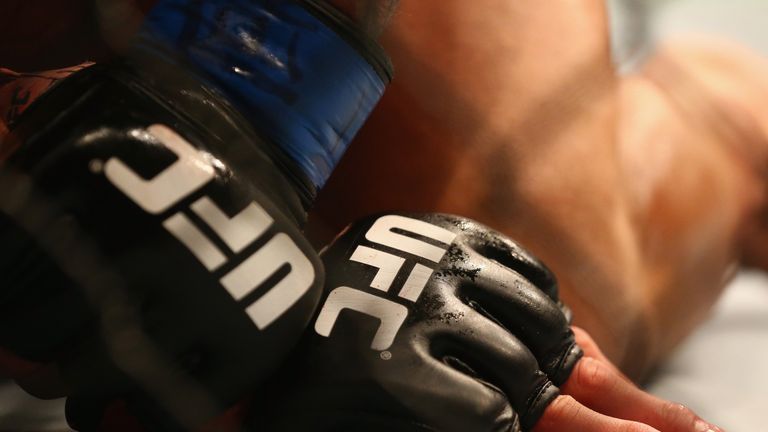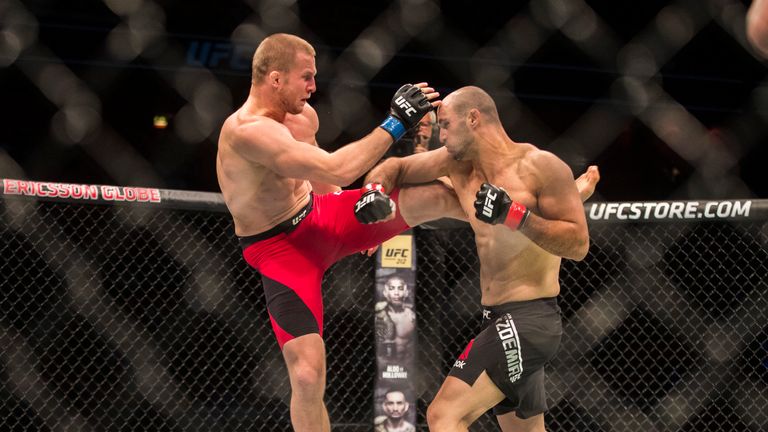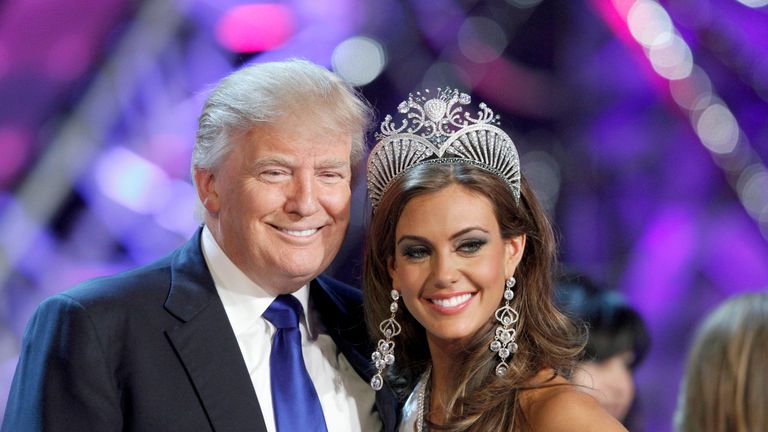UFC-owner throws in the towel on IPO as new economy suffers flotation fatigue
Sky's Ian King says Endeavor's decision to shelve its market debut is a sign that the IPO market in the US has become overcooked.
Friday 27 September 2019 17:06, UK
It would certainly have been one of the glitzier stock market flotations of the year.
Endeavor Group, owner of the Ultimate Fighting Championship (UFC) and the Miss Universe beauty pageant, had been planning to come to market in an initial public offering (IPO) that would have valued it at around $7.2bn (£5.85bn).
The company was looking to raise just over $465m in the process - down from the $712m or so that it had originally been thinking.
However, overnight, it abandoned the plan. A lack of appetite among investors is said to be behind the decision.
The pulled flotation is another sign that the IPO market in the United States has become overcooked. WeWork, the shared office company, pulled its planned IPO last week, while a host of other much-vaunted companies, including ride-hailing apps Lyft and Uber and the communications platform Slack, have all seen their shares perform disappointingly after coming to market this year.
So, too, did the latest "new economy" stock to come to market. Peloton Interactive, which sells connected exercise machines and runs interactive fitness classes, floated on Wednesday night and immediately saw its share price fall by 11%. Peloton's experience is thought to have influenced Endeavor's decision to shelve its IPO for now.
It all suggests that investors are beginning to tire of much-vaunted "new economy" companies which come to market with fantastic growth projections - and appropriately fantastic valuations - but which, in the here and now, are not profitable.
Endeavor, which lost $193m during the first six months of the year on sales of $2bn, appears to have fallen foul of that change in sentiment.
That is despite it being anything but a "new economy" company.
It began life in 1898 as the William Morris Agency, one of Hollywood's first - and now its biggest - talent management agencies. Its early clients included two of the biggest stars of the silver screen in its earliest days, including Charlie Chaplin and Mae West, while current stars on its roster include singer Rihanna and actress Charlize Theron.
Over recent years, the company has expanded rapidly through acquisition, most notably through the $2.4bn takeover six years ago of IMG Worldwide, the sports management agency founded by the late Mark McCormack, the legendary sports agent who made fortunes for golfers Arnold Palmer and Jack Nicklaus by lining up lucrative endorsement deals for them.
It followed that deal by buying the rights to Miss Universe in 2015 from Donald Trump and, a year later, buying UFC, the mixed martial arts promotion company, for $4bn.
The strategy behind both of these deals, particularly the latter, was that they would offer a more predictable stream of earnings than "lumpier" income derived from negotiating contracts on a client-by-client basis.
Nor was the glitziness attached to Endeavor confined to its clients from the world of sport, showbusiness and modelling.
The company was founded in 1995 by Ari Emmanuel, brother of Rahm Emanuel, a former Mayor of Chicago and a former White House chief of staff under Barack Obama.
Mr Emanuel, a long-standing friend of Mr Trump who has nonetheless hosted fundraising events for the Democratic Party, is regarded as one of the most powerful figures in Hollywood. The prospectus that was published for Endeavor included, as a case study, how he turned Dwayne Johnson, the former wrestler known as The Rock, into one of the world's best-paid film stars.
After the flotation, super-agent Mr Emanuel and his co-founder, Patrick Whitesell, would have owned 18.8% of the business, but would have controlled 26.6% of its votes. The biggest shareholder would have continued to be Silver Lake Partners, the private equity firm, which would have held 42% of the shares but almost 59% of the votes.
Apart from the valuation, these disproportionate voting rights also appear to be starting to put off the traditional institutional investors whose support is essential for an IPO to succeed.
That was certainly the case with WeWork, whose co-founder and now deposed chief executive, Adam Neumann, would have effectively retained control of the company after its flotation.
Even after cutting its valuation on Thursday, Endeavor - which had debts of $4.6bn at the end of June - could not persuade such institutions to invest, despite having an illustrious list of advisers including Goldman Sachs, Morgan Stanley, JP Morgan and Deutsche Bank trying to twist their arms.
Endeavor may well try again next year.
But, for now, it is hard to avoid the conclusion that any extravagantly valued loss-making company trying to come to market will struggle to do so in the current environment.
Investors have had enough - and that could spell bad news for Silicon Valley, home to many such companies, in the short-term.









